Written by Emma Johnson, Marketing, Business Development, Pinchin Ltd.
What is Pollinator Week?
This year, June 17-23 is dedicated to protecting the pollinators! This week is an annual celebration in support of pollinator health that is managed by the Pollinator Partnership. This week dedicates time to raising awareness for pollinators and what we can do to protect them. Birds, butterflies, moths, flies, beetles, bats, wasps, small mammals, and (most importantly) bees are all pollinators! Pollinators are crucial to the conservation and wellbeing of the environment because they are an essential part of plant reproduction.
Pollinator week emphasizes the connections between pollinators and climate change. Pollinators are at risk because their food and homes are disappearing, and rising temperatures and natural disasters are affecting their ability to survive. The conservation of pollinators and their habitats help to support healthy ecosystems, soil, water, air and plants. Without pollinators, our ecosystems and natural resources would be deeply affected. Thus, Pollinator Week serves as a reminder of all the ways in which pollinators support our ecosystems and the important role they play in our daily lives.
Fun Fact: Pollinators are responsible for bringing us one out of every three bites of food!
University of Guelph Honey Bee Research Centre
Pinchin is a proud supporter of the University of Guelph Honey Bee Research Centre (HBRC)! This research centre focuses on the education, outreach and advocacy in support of honey bees. They are currently in the process of creating an iconic, new facility for honey bee education.
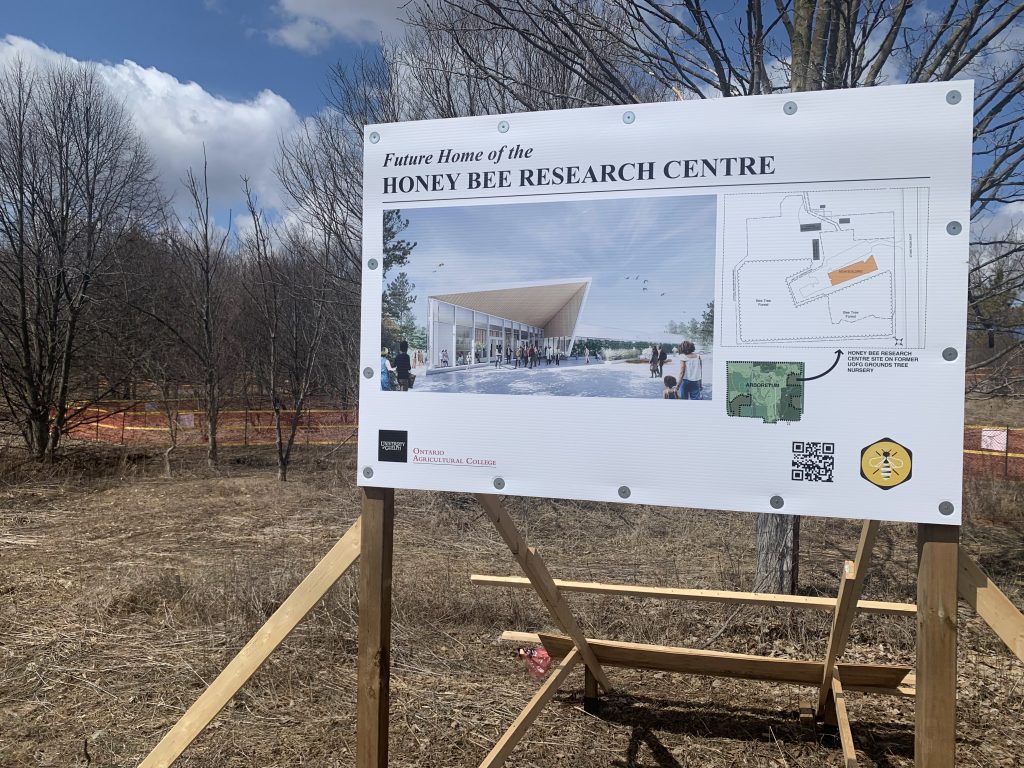
A preview of the new, iconic research center 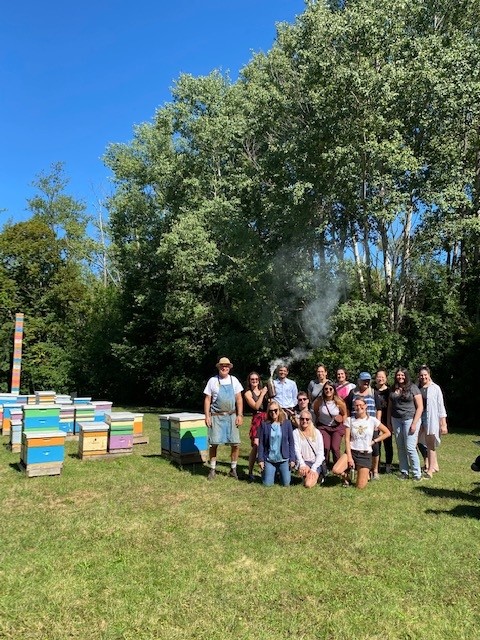
A few members of the Pinchin team visiting the HBRC! 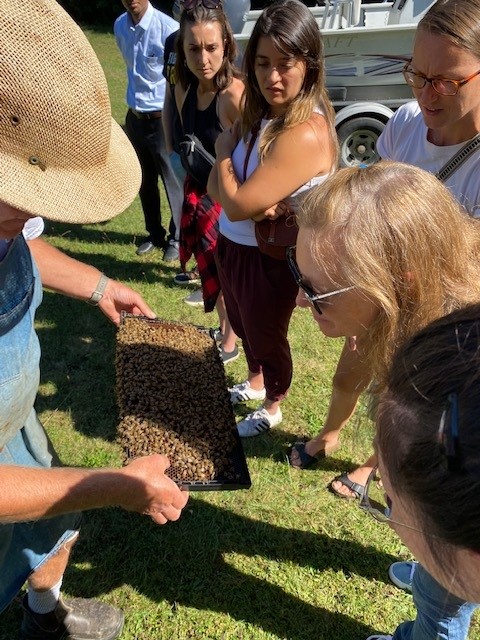
Getting a closer look at the hive
We are so happy to be contributing to the HBRC story. Learn more about our relationship with the UofG Honey Bee Research Centre and how Pinchin Protects The Honey Bee! Pinchin was able to tour the research facility in 2022! See a few pictures from that experience here.
Fun Fact: Pollinators add $217 billion to the global economy in agricultural activity!
You can also help protect the pollinators! Here are a few tips;
- Plant for pollinators
- Reduce or eliminate the impact of pesticides
- Register as a bee friendly garden
- Reach out to others – inform and inspire
- Support local bees and beekeepers by buying local honey
- Conserve all of our resources; use less and reduce your impact
- Support groups and organizations (like the University of Guelph HBRC). You can support the HBRC by donating or purchasing from their online store!
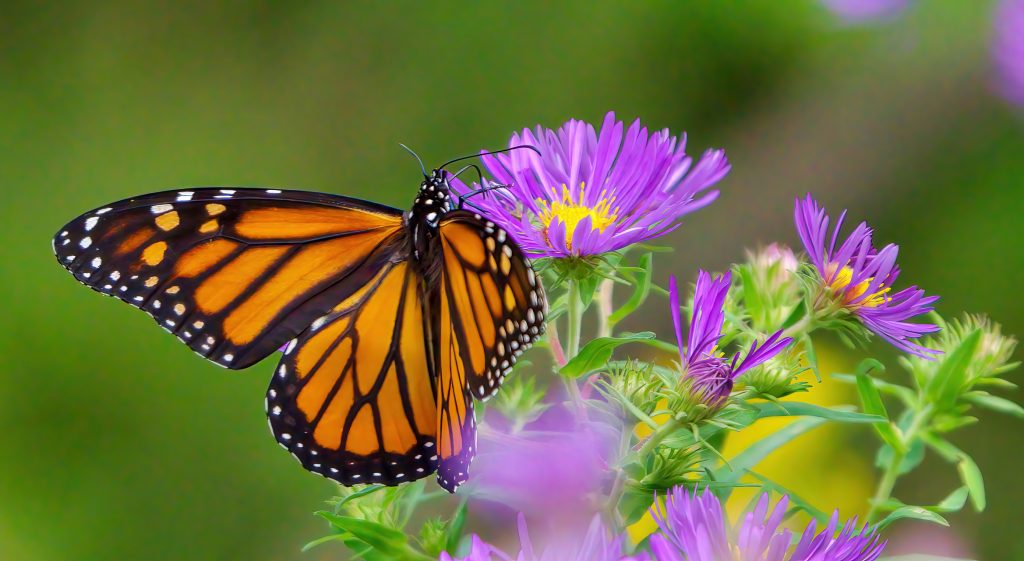
Monarch butterfly on purple aster flower in early autumn 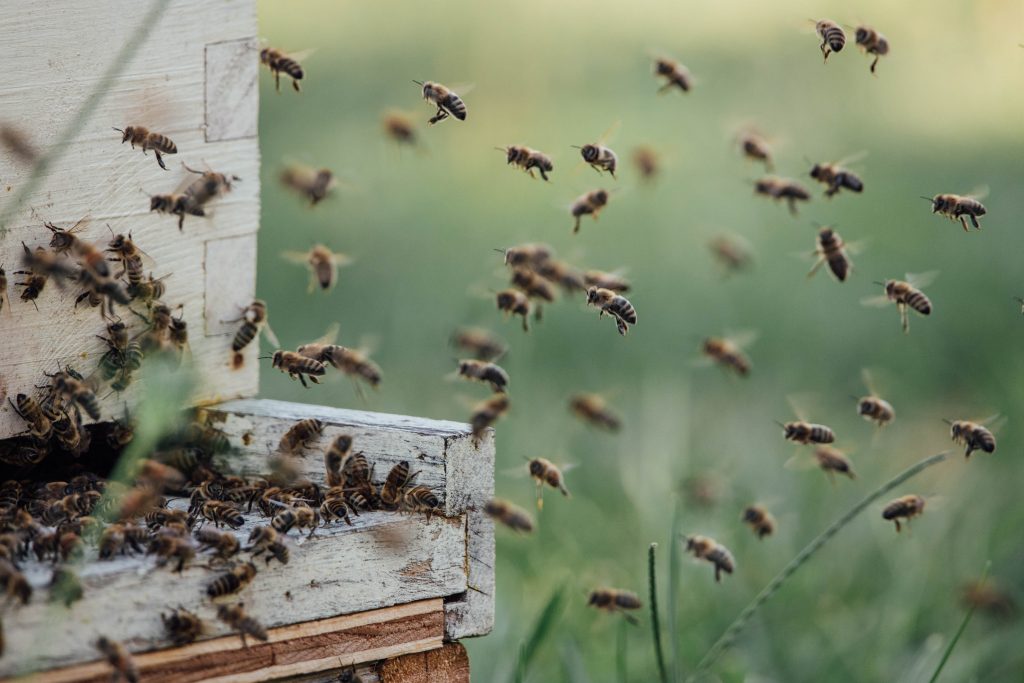
Honey bees flying to and from hive in Windsor, Ontario, Canada 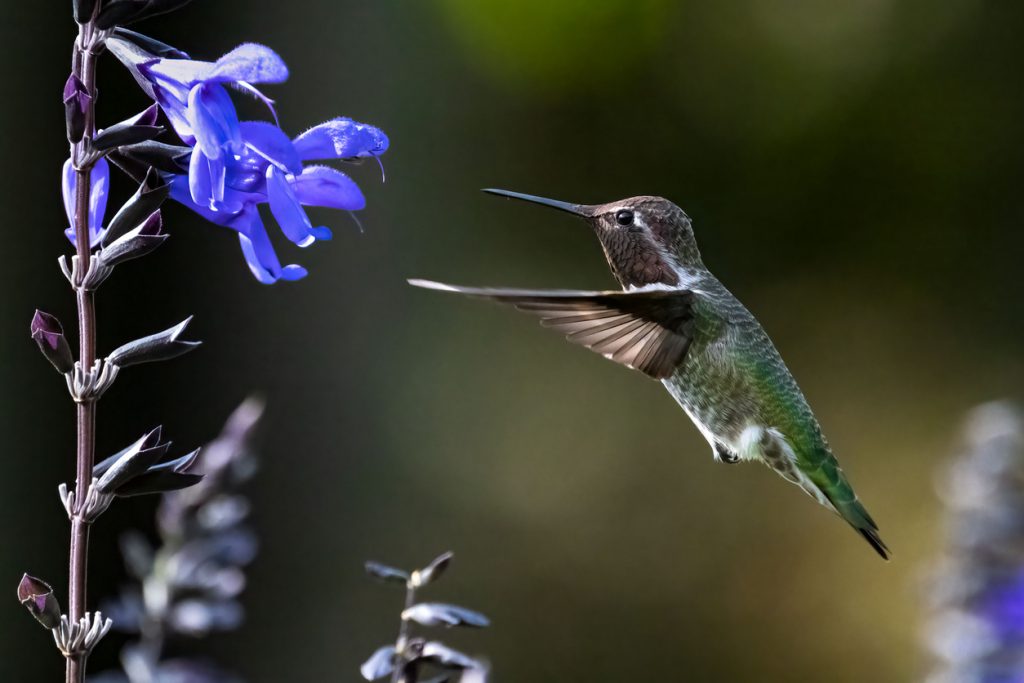
A closeup of Anna’s hummingbird hovering near anise-scented sage.